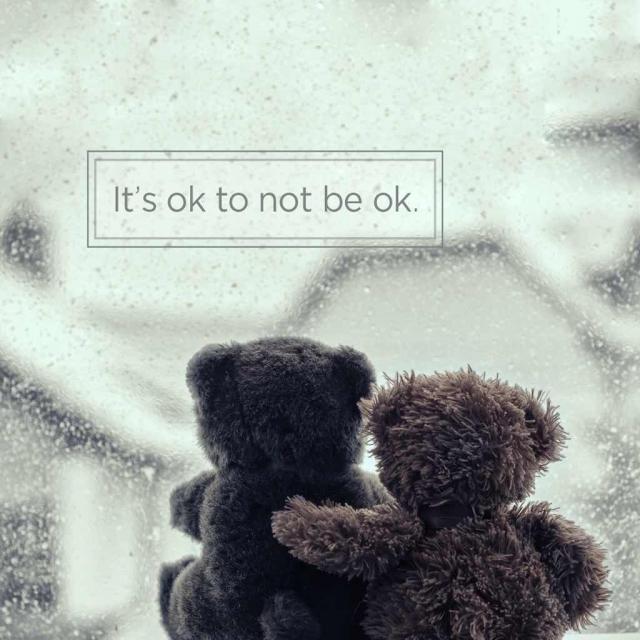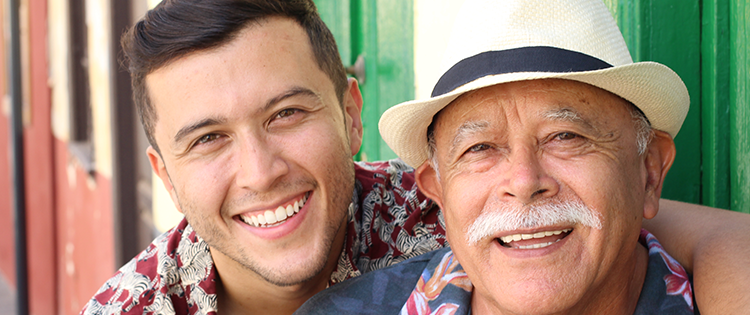Everyone feels blue now and then. But if your feelings last for more than a couple of weeks and get in the way of your normal daily activities, you may be suffering from depression. Understand what depression looks like and what you can do about to seek help.

Symptoms of Depression
Common signs of depression include:
- An “empty” feeling, ongoing sadness, and anxiety
- Tiredness, lack of energy
- Loss of interest or pleasure in everyday activities
- Sleep problems, including trouble getting to sleep, very early morning waking, and sleeping too much
- Eating more or less than usual
- Crying too often or too much
- Aches and pains that don’t go away when treated
- Difficulty focusing, remembering, or making decisions
- Feeling guilty, helpless, worthless, or hopeless
- Irritability
- Thoughts of death or suicide
The symptoms may seem to go away, but when someone is very depressed, the symptoms usually come back. Don't ignore the warning signs. If left untreated, serious depression may lead to suicide. If you are thinking about harming yourself, tell someone immediately.
Depression Screening Quiz
Take our depression screening quiz to see if you have symptoms of depression. You should consider seeing your doctor or a qualified mental health professional if you have experienced several of these symptoms for two weeks or more, especially if these problems are getting in the way of your life.
One Woman's Experience With Depression
Who gets depressed and why?
Anyone can get depression. In fact, more than 1 in 6 adults will have depression at some point in their lives. Some people are more likely to become depressed than others, including older adults, smokers, people with medical problems, and people who are stressed.
Many things can increase a person's chance of getting depressed. Everyone is different, but here are some common things that can lead to depression:
- The death of a loved one
- Highly stressful situations (for example, acting as caregiver for a loved one)
- Life-changing health problems (e.g., cancer, diabetes, heart disease)
- Changes in the brain that affect mood
People can also be more likely to have depression if some of their blood relatives have had depression.
Depression and Aging
Important life changes that happen as we get older may cause feelings of uneasiness, stress, and sadness. For example, the death of loved ones, moving from work into retirement, or dealing with a serious illness can understandably leave people feeling sad or anxious. Sometimes it can be difficult to distinguish grief from depression. Many older adults can regain their emotional balance, but for others, the sadness may continue and they benefit from help.
It's important to remember that while depression is common among older adults, it is not a normal part of aging. In fact, studies show that most older adults feel satisfied with their lives, even if they have health problems. When an older adult does suffer from depression, it may be missed because the person may be less willing to talk about feelings, or they may show different, less obvious symptoms, and doctors may be less likely to suspect or spot it.
Getting Help
You may want to start with your family doctor or a mental health professional.
Treatment options include:
- Psychotherapy/counseling
- Antidepressant drugs
- Support groups to provide new coping skills
Most older adults see an improvement in their symptoms when they are treated with antidepressant medications, counseling, or a combination of both. Treatment is often covered by insurance.
NOTE: This information is not intended to provide a medical diagnosis of major depression. It cannot take the place of seeing a mental health professional. If you or someone you know is in distress or having suicidal thoughts, get help now. Call or text 988 or chat online for 24-hour, free and confidential support from trained counselors.
Para obtener asistencia en español durante las 24 horas, llame al 988.







